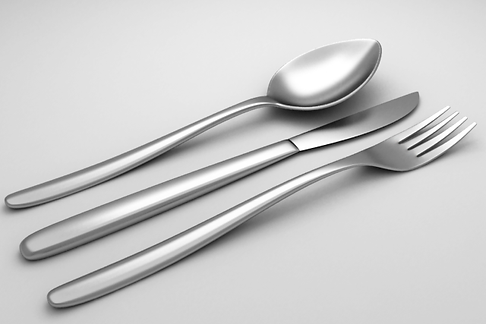Nutrition
Like sleep, good nutrition is another foundational aspect of maintaining good mental and physical wellness. Also like sleep, it is easy to let nutrition slide when we are working, stressed, and tired. There is also a lot of conflicting information available when it comes to nutrition, which can result in feeling overwhelmed when trying to create a healthy diet.

Nutritional psychology is a somewhat newer field that studies the relationship between nutrition and behavior, mood, and mental health; both at the individual level and community level. Nutrition’s role in our psychology can be a difficult area to study due to the vast number of variables present in how people prepare and consume food. That being said, there are a few things that have shown to be consistent across multiple studies:
-
Most people need vitamin D supplementation in order to maintain levels that are connected to improved mental and physical wellness.
-
Sugar/simple carbohydrates cause blood sugar changes that affect mood and mental processing.
-
A Mediterranean-based diet has consistently shown to have a positive effect on physical and mental wellness across multiple domains.
-
Dehydration can cause issues like “brain fog”, lack of concentration, and tachycardia, which can increase feeling stressed, anxious, or depressed.
-
Vitamin D, Omega-3 fatty acids, and B-complex vitamins are probably the three main nutrients that affect mental health.
Ultimately, the best diet plan is the one that meets your goals and you can stick with.
One way to improve mental and physical wellness through nutrition is to practice mindfulness. We’re often trying to inhale a few bites of lukewarm food between calls, which leads to mindless eating. That is, eating in a way that means we’re not aware of what we’re eating, what kind of effect it will have on our body, and how full we are. Mindfulness can help us understand why we crave certain foods, what our personal barriers are to good nutrition, and how we can adjust our diet to fit our wellness goals.
Practical solutions are important to reduce the mental load of maintaining good nutrition. Sometimes it can take out-of-the-box thinking. For example, if you recognize that dirty dishes are a personal barrier to healthy eating use paper plates instead. If you hate cooking because your dishwasher sucks, run the dishwasher twice (or three times!). If you find washing Tupperware intolerable, use cardboard takeout containers instead. As long as your meals offer complete nutrition there is nothing wrong with eating the same thing multiple days in a row. Figuring out your “sticking points” is something mindfulness can help you with.
Some things first responders have found helpful for sticking to their nutrition goals:
-
Using meal plan subscription boxes or other meal delivery services.
-
Ordering groceries online for curbside pickup to avoid extra purchases.
-
Keeping a supply of shelf-stable healthy snacks in your work bag.
-
Meal-prepping to limit having to cook on workdays.
-
Carrying plastic or reusable utensils.
-
Eating small snacks throughout the day versus waiting until you’re 10/10 hungry to eat.
-
Using a 12V cooler to keep food fresh all shift while stationed in a vehicle.
-
Using a 12V food warmer to re-heat or cook food while stationed in a vehicle.
-
Make a list of what nutritious meals and snacks are offered by places you commonly stop at while on shift.
In recent years first responders who spend their entire shift in a vehicle have found a great resource in long-haul truckers. In particular, the use of 12-volt appliances to keep food cold/warm and recipes to use with the appliances.
Ultimately, the most important part of healthful eating for first responders is figuring out what your barriers are, how to mitigate them, and what changes will have the biggest impact on your wellness. Even if you feel your diet is already on point, it can be beneficial to re-evaluate it every few months to ensure that it is still working for you.